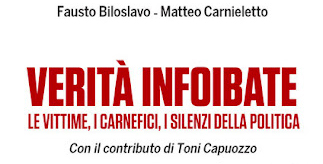Autore: Claudio Ugussi
Note biografiche:
Claudio Ugussi was born in 1932 in Pola/Pula where he attended the primary and the secondary school. When he finished the Liceo in Fiume, he went to the University of Zagabria/Zagreb where he graduated in Literature and Philosophy with a thesis about P.A. Quarantotti Gambini’s narrative.He lives in Buie/Buje and since 1959 he has been teaching in the local High school; he has a passion for painting too. He published his first poems in “Poesia 1” (Poetry 1) and “Poesia 2” (Poetry 2) in 1964 and 1968 (Edit,Fiume). In 1969 its anthology “Gli Ulivi” (The olive trees) (Fratelli Palombi Editori, Roma) with a preface by Renzo Frattarolo. He has got several awards for painting as well as for literature: in the contest “Istria Nobilissima” for his texts of narrative (La poltrona/The armchair 1981; Il pittore/The painter , 1985; La partenza di Obi/ Obi leaving, 1986; Viaggio di circostanza/ Occasional travel, 1988; Vado a Roma, vieni anche tu/ I go to Rome, please come with me, 1990). It has been released in Udine, by Camponotto publishing house his novel “La città divisa” (The split city), an autobiographical story covering the period between 1944 and 1947 telling the difficult events occured in Pola during those years.
Scheda critica:
We publish some long passages taken from Claudio Ugussi’s tales and that have been awarded in the contests of Art and Culture “Istria Nobilissima”. They were published in “Anthology of the awarded works” from the Popular University of Trieste and from the Union of Italian people in Istria and Fiume: “La partenza di Obi” featured in a 1986 book and “Viaggio di circostanza” in 1988.
The occasion of the journey (first tale) is the grandmother’s death; she had left Pola, together with the uncles during the first exodus to settle in Turin. The chance to meet again between the people who have left and those who have remained, on the occasion of that first funeral far from the native land, let the memories run. “La partenza di Obi” tells instead the story of another exile, the one occured after 1954 from the areas of the former Zone B (Buie/Buje and Capodistria/Koper surroundings). Whereas the first tale is autobiographical, in the second one the author includes characters based for the most on real people, as well as are real the most part of the narrated events, of which Ugussi was certainly a witness.We have intentionally attached the two tales: they represents two different aspects and two phases of the Istrian tragedy.
Titolo estratto: Two tales
 Language
Language Italian
Italian
